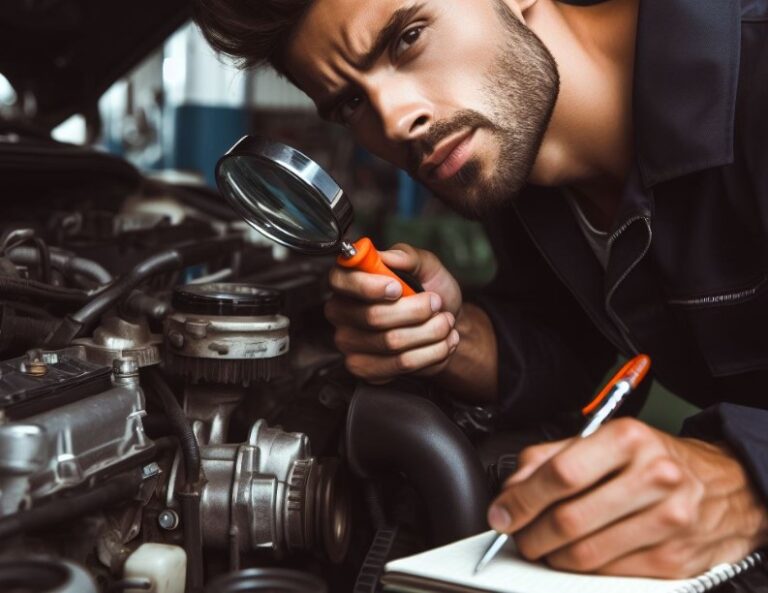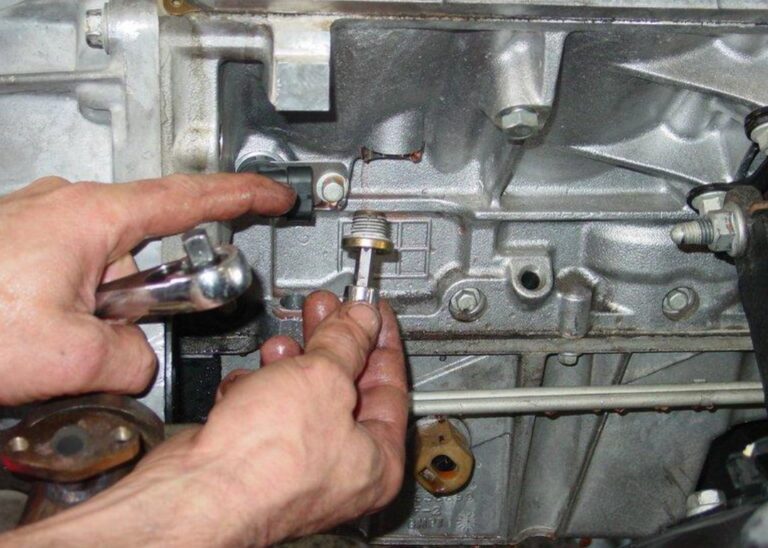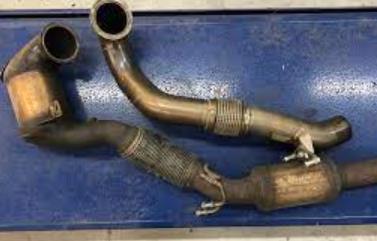Can I Jet Wash My Petrol Engine? Quick Answer
Has the question, Can I Jet Wash My Petrol Engine? Ever crossed your mind? The fact that there are proper and improper ways to pressure wash engine blocks safely and effectively without harming vital engine components is where individuals occasionally go wrong.
The engine is the most crucial component of your car, even after you’ve had it washed and its interior well-cleaned.
Because it’s hidden under the hood, many people will never see how filthy it gets.
The sticky buildup and dirt from the road splash onto the engine, making it black with sludge. However, a pressure washer might clear the spot completely.
This manual will teach you how to make your car’s engine appear like it just left the production line. Read this manual to know how restored classic automobiles got those spotlessly clean engines and hood cases.
Can I Jet Wash My Petrol Engine?
Yes, it is possible, but before you start water jetting your engine, you must cover the distributor, fuse box, alternator, and all other electrical elements with a waterproof bag or plastic wrap. Air filters are one example of a component that can sustain damage.

Why You Should Jet Wash Engine?

Protect All Electrical Components
With the help of plastic bags or saran wrap, shield any electrical components from water intrusion that could short out electrical connections.
Ensuring you have noticed all important elements, such as alarm systems and other electrical connections, is worth your extra effort.
A simple rubber band or tape wrapped around the plastic covering the component frequently works nicely. The progress of this project will largely be based on how well you wrap and safeguard your electrical components.
The following is a summary of the parts you should shield before washing:
- Alarm devices
- Battery terminals and wiring
- Every spark plug
- Cap on distributors
- Connections for alternators
- If applicable, wiring for the headlight casing
- If wanted, a cabin air filter box
Degrease The Engine
Use a non-corrosive degreaser detergent. If the engine is hot, the detergent won’t be able to soak effectively, and you risk getting burned when cleaning.
Spray the engine liberally, covering every angle. Work the degreaser in with a hard brush.
Let the degreasing detergent rest on the engine to loosen the grease. Work the degreaser solution into the corners and any other hard-to-reach cleaning areas using a hand-held degreaser bottle and a brush.
Clean Using A Pressure Washer
You can begin rinsing after the detergent has soaked for a few minutes. Start with the lowest pressure setting and a gentler nozzle on a pressure washer to prevent spraying water into the electrical components—wide-angle spray tip.
Starting with a PSI under 1,500 should be enough for this project. Hold the wand farther away from the engine—at least 5 feet—if you cannot adjust the pressure.
Spray away all the cleaner and residue until the engine is as clean as it can be.
Wipe It Dry
Although old rags work just as well, microfiber towels are the most efficient option. Dry everything off as best you can.
On a sunny day, you can leave areas out of your reach to air dry in your driveway or the garage.
There could still be some unclean areas. You can use the towel to clean these places, using a little “elbow grease.”
Spray On Some Protection
Use plastic/vinyl care spray to clean surfaces not made of metal. Armour All is a well-known brand. Remove any extra by wiping after letting it sit for a few minutes.
Buff the protector to a good sheen using a microfiber towel or another soft cloth. Your plastic and vinyl covers will be prevented from drying out and breaking by doing this, improving their appearance.
Remove Protective Plastic
After you’re done cleaning, remove the saran or plastic wrap you used to shield your electronics, dry, and polish.
You want to avoid this, but if you forget, the heat from your engine will prevent it from melting.
Why Steam Clean An Engine?
The final stage in car detailing is steam cleaning the engine bay. It will spiff up your car if you want to impress your friends or a possible buyer.
It works even better and more efficiently than an engine degreaser. Additionally, it will prevent you from getting covered in oil if you ever have to go behind the hood.

Should You Jet Wash Or Steam Clean The Engine?
The engine in your car should be in good working order. It truly is a piece of art. And you wouldn’t use a dirty rag and some white spirit to attempt to clean up one of Van Gogh’s finest works.
A jet wash is the blunt instrument of the automobile world regarding engines.
The electrical components of an engine are less durable or moisture-tolerant than the mechanical components. Additionally, there are numerous electric components in contemporary automobiles.
Compared to pressure washing, steam cleaning does less damage. Still, a jet wash exposes delicate electronic components like ignition coils and spark plugs to dampness.
And you can only solve the problem by putting pieces of it in a plastic bag.
Interfere With The ECU
Would you open your home computer and fiddle with the sensitive printed circuitry? Believed not. The Electronic Control Unit is the mind of your vehicle.
It controls the car’s electronic operations, encompassing everything it does, from starting the engine to choosing how much fuel to use.
Ruining the ECU might be a costly endeavor. Once installed and fitted, a replacement may cost between £100 and £1000. If you visit a franchised dealer, the price will probably increase.
Mess with the Airbags
A car is loaded with sensors, as we’ve already established. The proper sensors alert the airbag control unit when there has been significant deceleration, and a switch is flipped to combine potassium nitrate and sodium azide in the airbags.
Nitrogen fills the thin nylon airbag as a result. It is reasonable to remark that tampering with the contents is like playing with an unexploded bomb because everything happens in a split second. Just refrain.
Electric And Hybrid Cars
In the UK, sales of alternative fuel vehicles are at an all-time high. There are now thousands in use, and they differ from regular cars.
According to a warning from the Institute of the Motor Industry (IMI), unqualified mechanics running these motors risk electrocuting themselves.
The cause is that some electric car circuits operate at a voltage that is more than three times higher than the 230v mains supply used in our homes.
It shouldn’t come as a surprise, given that a 1.5-ton car needs a lot more current to reach 70 mph than the typical household refrigerator.
Steve Nash, chief executive officer of IMI, stated that qualified training is required before working on such vehicles. “Someone is going to try to do something they shouldn’t do, and they are going to fry themselves,” he said as a warning.
Either the person working on it will receive a 600 or 700-volt shock, or a public member could be in danger of fire. This is not a scare tactic. It’s true. Note this.
The Dos And Don’ts Of Pressure Washing A Car Engine
The Do’s
Cover The Electricals
Start by placing plastic covers over the electrical components, including the alternator, distributor, and battery. Don’t let them get wet, even if you direct a strong water spray at them.
Disconnect The Battery Terminals Off
There is a potential that water will seep inside the cover even after the electrical and the battery have been covered.
To prevent short circuits, never leave the battery terminals in place. Remove the negative terminal first by locating it. Learn more about how to disconnect a car battery by watching the video.
Degrease Manually
Many individuals use a pressure washer to degrease the engine, a crucial step in engine cleaning.
Reduce the time the pressure washer is pointed straight at the engine by degreasing. Apply the degreasing liquid to the engine, let it sit for a while, and then use the pressure washer to finish the work.
Adjust The Pressure Accordingly
Not every part of the engine can endure the same amount of pressure. For instance, the engine’s metal components can withstand higher pressure, yet the plastic covering needs less pressure to be cleaned. Use a good pressure washer with adjustable modes to clean the engine effectively.
The Don’ts
Don’t Wash The Engine When It’s Hot
You must cease washing your engine after getting home from work. When you spray cold water on heated metal components, they can swiftly compress and even break.
After letting the car idle, wash the engine as usual.
Don’t Use Nozzles With A Narrow Tip
It would help if you refrained from using a nozzle with a narrow focus because doing so will raise the water pressure.
Always use a wide-angle spray tip to minimize the pressure and avoid blasting water into the electrical components.
Don’t Bring The Nozzle Very Close To The Engine
Keep a safe distance between the engine and the pressure washer nozzle. Keep the pressure washer at least 3 to 4 feet away from the engine if you can’t change the pressure setting.
Move the nozzle closer to the engine when the pressure is switched to the lowest level.
How Frequently Can You Pressure Wash The Car Engine?
There is no definitive answer since it depends on your location and how old your car is. Use a pressure washer to clean the engine if you notice a lot of dirt, oil, or grime adhering to it.
Conclusion
This is how can you jet wash my petrol engine. If you follow all the dos and don’ts described in this guide, pressure washing your engine is entirely safe.
Be sure to familiarize yourself with the engine’s parts because some cannot sustain high water pressure. Additionally, the instruction booklet will provide you with all of the engine’s technical details so you may thoroughly clean it.
People Also Ask
Is it safe to wash the petrol engine?
Regular engine cleaning is essential for corrosion prevention and smooth operation. It would help if you did it safely to prevent damaging the engine or getting electrocuted. Before starting the engine, ensure it is cool, use a non-flammable cleaning, and keep water out.
Is it OK to wash the engine with water?
Although a water jet is a useful cleaning tool, we recommend simply using low-pressure water from a hose. Before the degreaser does its job, water is mostly required to wet your engine components so they can release dust and grime. After the degreaser is finished, parts must be rinsed off to expose a clean engine compartment.
Is it safe to wash the engine at the car wash?
Rinse off the engine compartment using a low-pressure spray. Self-serve car wash water cannons have high-pressure capabilities, so this shouldn’t be an issue at home. When using them to clean your engine bay, use caution and never pull the button to activate high pressure.
What is the best way to wash an engine?
Using a brush or vacuum removes loose dust, grime, and dried debris. Remove the car battery’s terminal hook, then cover any exposed electrical parts with plastic wrap. Use a detailing brush to scrape after applying a degreaser. Use a power washer or steamer to rinse, then use microfiber towels to pat dry.

Welcome to the exhilarating world of Matt Rex, a professional car racer turned renowned vehicle enthusiast. Immerse yourself in his captivating blog as he shares heart-pounding adventures, expert reviews, and valuable insights on cars, trucks, jets, and more. Fuel your passion for speed and discover the beauty of vehicles through Matt’s engaging stories and meticulous expertise. Join the ever-growing community of enthusiasts who find inspiration and expert advice in Matt Rex’s blog—a digital hub where the thrill of speed meets the pursuit of knowledge.







![What Trucks Does Nyjah Use? [Answered]](https://www.turbochaos.com/wp-content/uploads/2023/12/What-Trucks-Does-Nyjah-Use-768x491.jpg)